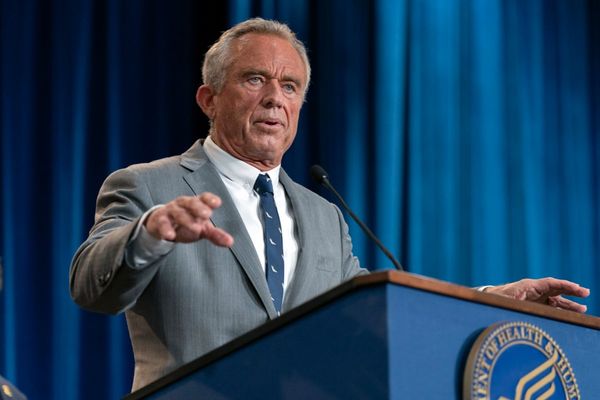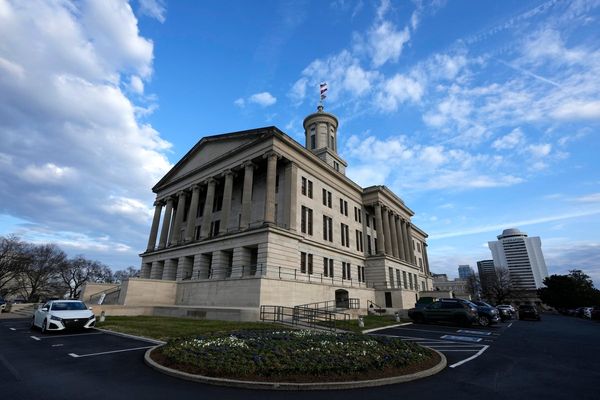WASHINGTON — A group of Justice Department prosecutors believe there is sufficient evidence to charge Donald Trump with obstruction of justice, but the path to an actual indictment is far from clear.
The team that’s part of the classified records probe has not yet made a formal recommendation to Attorney General Merrick Garland, who would ultimately approve or reject such a move, according to people familiar with the matter. It’s also unlikely officials would bring only obstruction charges amid several other Trump investigations into potential crimes, the people said.
In addition, while some FBI agents oppose bringing such a politically charged case as Trump considers a 2024 presidential bid, others support action, said the people, who asked for anonymity to discuss information not yet public. Agents, however, don’t make the final decisions.
The Justice Department has publicly indicated that obstruction is part of its probe into the mishandling of classified records, noting there was probable cause for the charge in the Aug. 5 FBI search warrant application for Trump’s Mar-a-Lago estate. But no charges are likely to be filed — or publicly revealed — before the Nov. 8 midterm elections, and perhaps only after the Christmas holiday, the people said.
“Of all the things Trump is being investigated for around the country, obstruction of justice is a slam dunk and I think he’s going to be indicted,” said Frank Figliuzzi, former FBI assistant director for counterintelligence. “I don’t see why a charge of obstruction of justice couldn’t be filed by the end of the year.”
Even with overwhelming evidence, the potential indictment of a former president is unprecedented and would likely set off a firestorm in a nation already divided by political passions and mounting tensions. This decision is the most important task for Garland, 69, the former federal appeals court judge who must now be an arbiter of whether criminal law extends to former presidents. The stakes couldn’t be greater for the judicial system, the nation and its citizens.
The Justice Department declined to comment. Former law enforcement officials say it’s critical for the department to follow the facts and precedent.
“This just happens to be occurring in the hot-house environment of a politically sensational case involving the former president of the United States, but the nuts and bolts of it are the same,” said David Laufman, former chief of the Justice Department team now conducting the records probe who is now in private practice. “In a case like this, you want a case to be as bullet proof as possible.”
Normally, career prosecutors on the investigative team assemble a memorandum detailing the probe, discussing strengths and weaknesses of a potential case and making recommendations whether to seek criminal charges, Laufman said.
Efforts to retrieve government records from Trump have been underway since 2021. The Justice Department issued a subpoena in May and a court approved the search of Trump’s Florida home and office, during which an estimated 11,000 records were retrieved, including some with top-secret classification.
The search was part of a criminal probe into whether Trump or anyone else mishandled government records or obstructed the investigation. U.S. Solicitor General Elizabeth Preloger, in an Oct. 11 brief opposing Trump’s bid for the Supreme Court to intervene, said the FBI found evidence “that efforts had likely been undertaken to obstruct the investigation.”
Last week, The New York Times reported that a long-serving Trump aide was filmed by a Mar-a-Lago security camera moving boxes out of the storage room before and after the May subpoena, while The Washington Post said a Trump employee told federal investigators they moved boxes at his direction.
“Based on what we see in the public record now, which is only a portion of the evidence the Department of Justice and FBI have amassed, it would appear they have more than enough evidence to prove beyond a reasonable doubt that the former president of the United States engaged in obstruction of justice,” said Laufman.
Garland is unlikely to make any charging decisions until after Christmas due to a variety of considerations, the people said. The Justice Department has unfinished work on the records probe and complex political and prosecutorial issues to resolve.
Some officials want to finish examining all relevant documents, in part to determine whether Trump should face other charges, the people said. But that process has been slowed by a court-ordered special masters’ review of the materials that isn’t due to be completed until Dec. 16.
Meanwhile, Trump and his allies are also under investigations linked to the Jan. 6 attack at the U.S. Capitol in Washington and efforts to overturn the 2020 election, which President Joe Biden won.
Some internal critics — including FBI agents — also are questioning why charges would be brought against Trump for obstructing justice and mishandling documents marked as classified when a decision was made in 2016 not to charge former Secretary of State Hillary Clinton, Trump’s Democratic rival, for using a private email server that classified information passed through.
Justice officials concluded that charges against Clinton weren’t justified because she didn’t intentionally violate classification laws and cooperated with the investigation into the matter.







